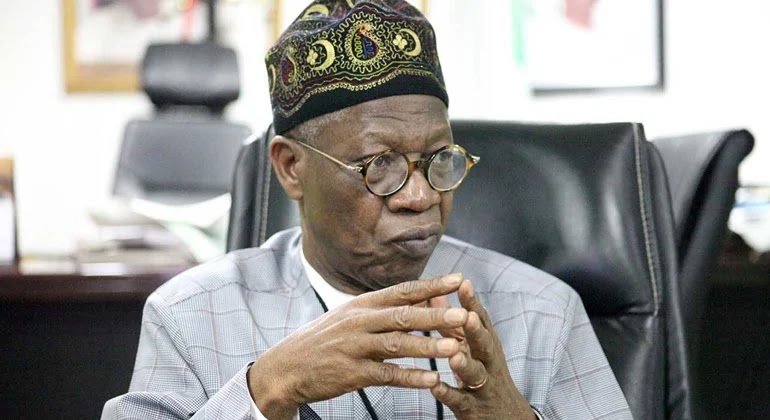223
The Minister of Communication and Culture, Lai Mohammed, has said that the Federal Government cannot, at the moment, remove subsidies on the Premium Motor Spirit (PMS), popularly called petrol.
Mohammed, who spoke during an exclusive interview to Reuters in London, said many other nations were introducing measures to help citizens cope with high oil energy prices, hence Africa’s most populous country could not be an exception.
Nigeria is Africa’s largest oil exporter but still has to import almost all its fuel needs due to a lack of refining capacity. The Federal Government shelved plans to abolish fuel subsidies earlier this year, a move that raised concerns with the International Monetary Fund (IMF).
“When you consider the chaos, the social disharmony and … instability such an action (abolishing subsidies) would facilitate, is it worth it? I don’t think so,” the Minister said.
The Minister believes that a new industry law that allocates money to oil-producing communities would stop attacks and blamed the European Union’s climate change policies for stifling investment in the sector.
He added, “We believe that climate change is real and important for emission control, but there is a bit of double standard in the EU policy regarding climate change,” he said.
In addition to attacks on oil infrastructure, several parts of the north are plagued by violence orchestrated by bandits while dozens were killed in church attacks in Kaduna and Ondo States last month.
“We are leaving the country much more secure than we met it,” Mohammed said.
He equally noted that President Muhammadu Buhari administration has made progress made against Boko Haram since 2015.
Nigeria suffers intermittent fuel shortages and has raised its deficit forecast twice this year and increased borrowing to cover the cost of the subsidy.
The country’s petroleum production has also fallen short of government targets, with $1 billion in revenue lost to crude oil theft in the first quarter of this year, according to the sector regulator.
Similarly, the Nigerian Midstream and Downstream Petroleum Regulatory Authority (NMDPRA) expressed worry over the rising incidents of vandalism and theft along the key pipeline conveying refined petroleum products to Mosimi, Ibadan, Ore, and Ilorin fuel depots.
NMDPRA Chief Executive, Farouk Ahmed, said this when the top executives of the South-west Independent Petroleum Marketers Association of Nigeria (IPMAN) visited him in Abuja.
While the nation suffers intermittent fuel shortages and has raised its deficit forecast twice this year and increased borrowing to cover the cost of the subsidy, its petroleum production has also fallen short of government targets, with $1 billion in revenue lost to crude oil theft in the first quarter of this year, according to the sector regulator.


